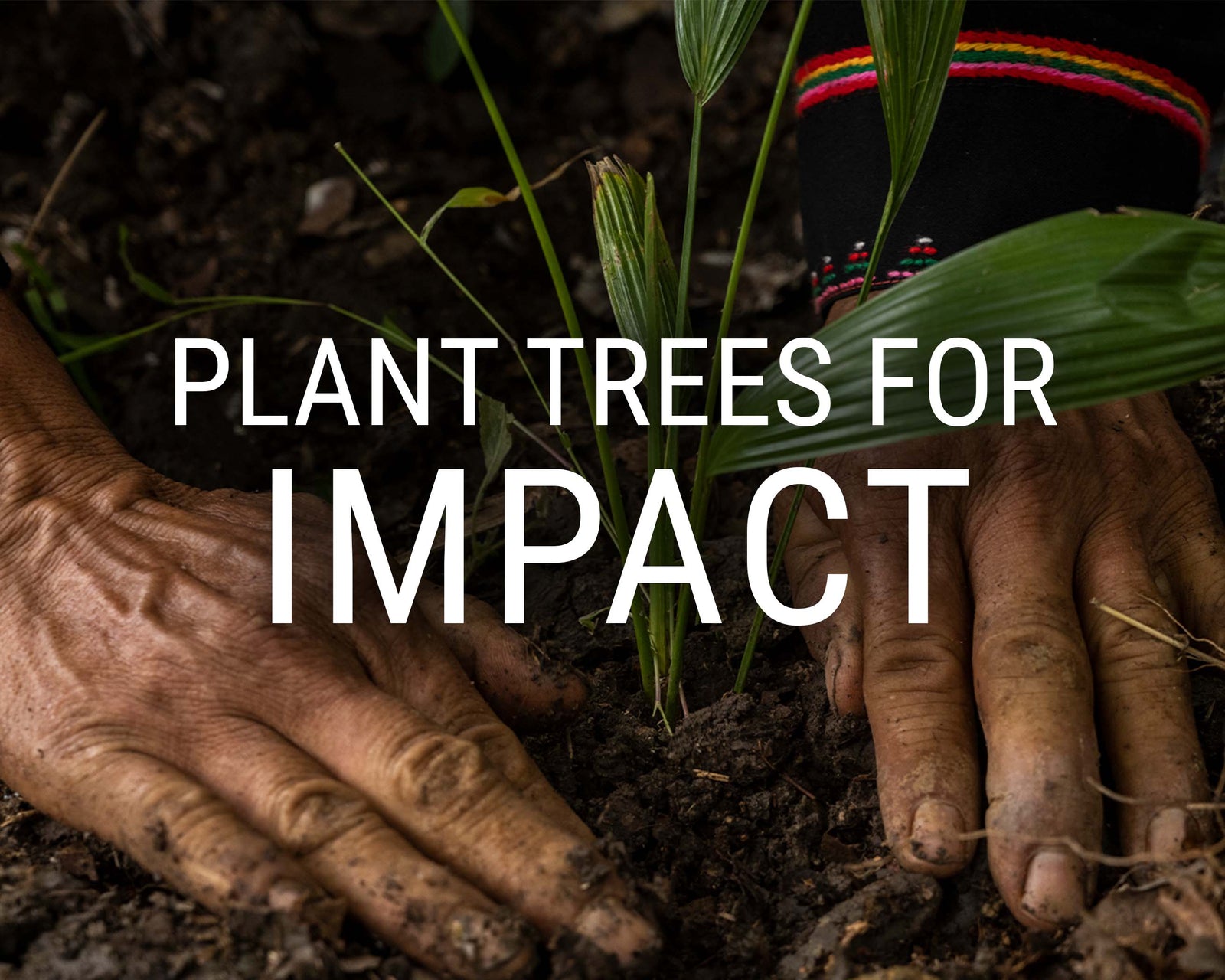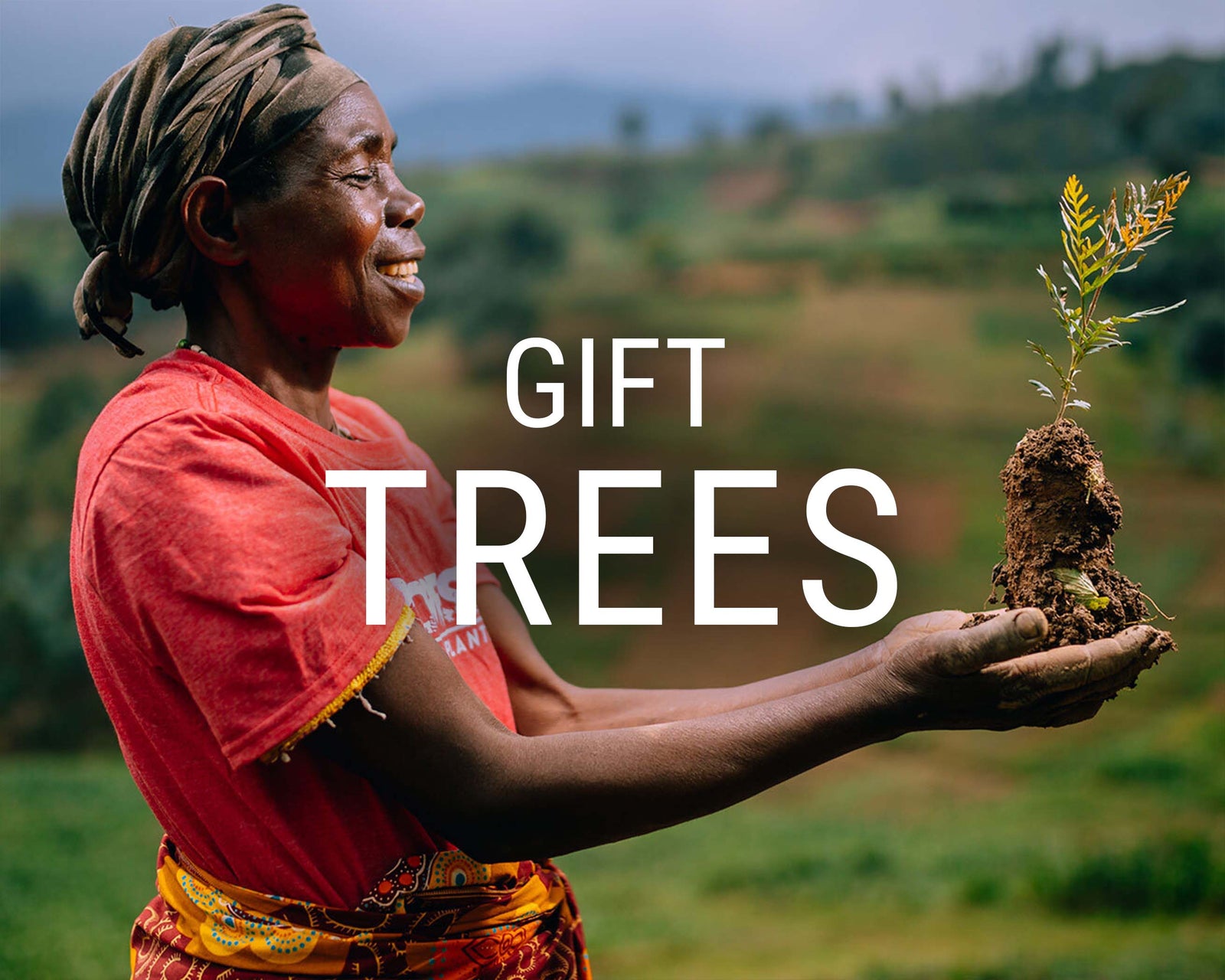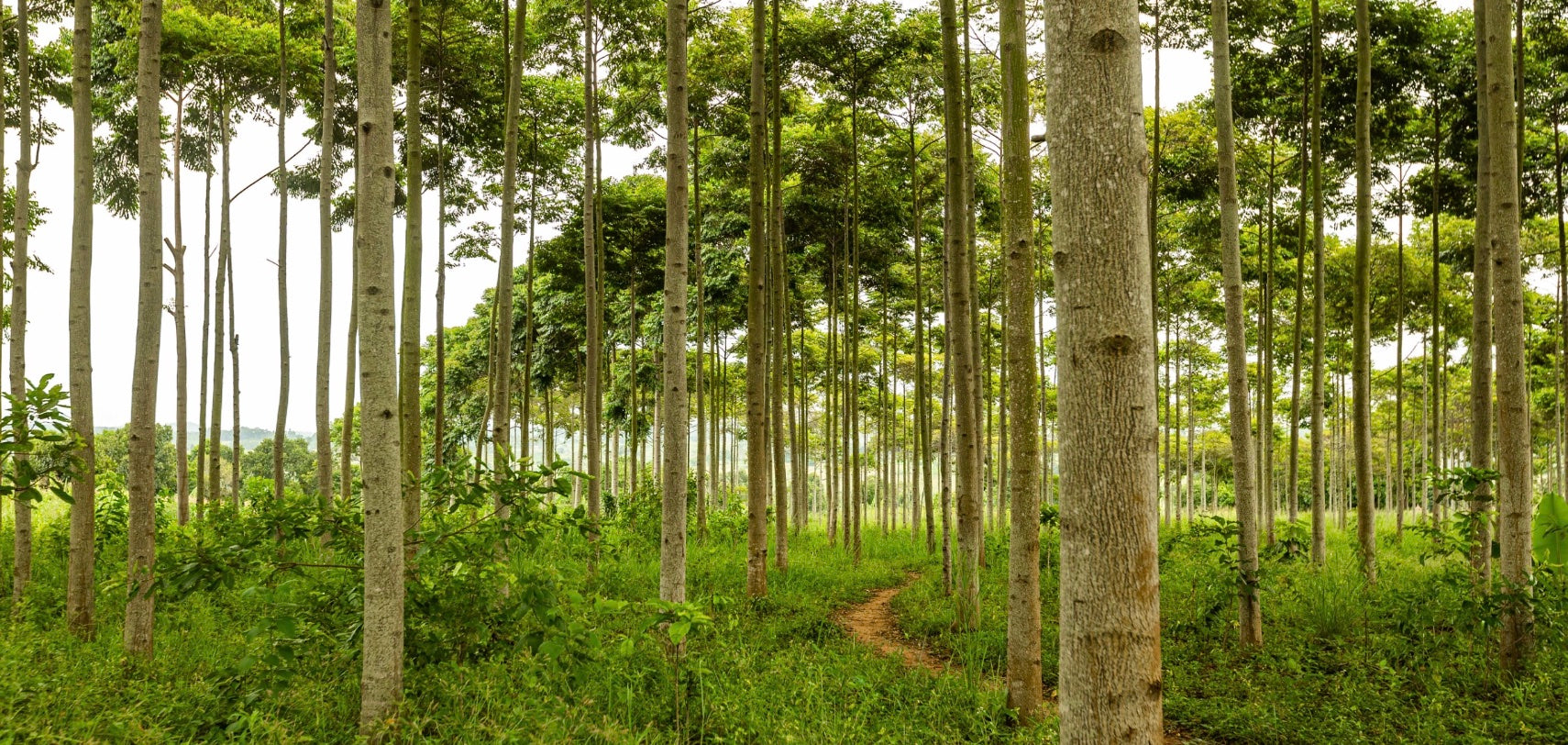1.5 Million Fruit Trees Planted Across India for Sustainable Livelihood
Meaghan Weeden | March 3, 2022 | 5 min read
Fruit Trees Change Lives: Reforestation Across India to reduce hunger in rural farming communities
Despite ongoing challenges like local lockdowns and restrictions on movement, our amazing on-ground partner planted a total of 1,533,930 fruit trees to restore 1,553 hectares of land in India last year. The plantings were distributed across the states of Uttar Pradesh, Madya Pradesh, Maharashtra, Haryana, Rajasthan and Uttarakhand, India. We also built nurseries in strategic areas of Haryana to reduce transportation costs and improve seedling acclimatization.
As the trees grow, they'll help alleviate hunger and poverty while fighting pollution and climate change across rural India. To accomplish this, our partners planted a diverse mix of fruit tree species, including guava, key lime, pomegranate, custard apple, jackfruit and more.

Fruit Trees Change Lives
When intercropped with seasonal vegetables, a grove of 100 fruit trees provides nutritional meals and sustainable income to a family of 4, helping to reduce migration into urban areas. Special emphasis was given to employing people from marginalized groups like widowed and elderly women.
In addition to providing social benefits, the trees planted will grow food and shelter for insects, bees, small animals, and birds. Biodiversity will also benefit from improved watershed health thanks to improved water absorption (and therefore, reduced runoff) during rain events. This will help keep area rivers clean by stabilizing soils, filtering stormwater, and more!
India 2021: the 6 states Where fruit trees were planted this year
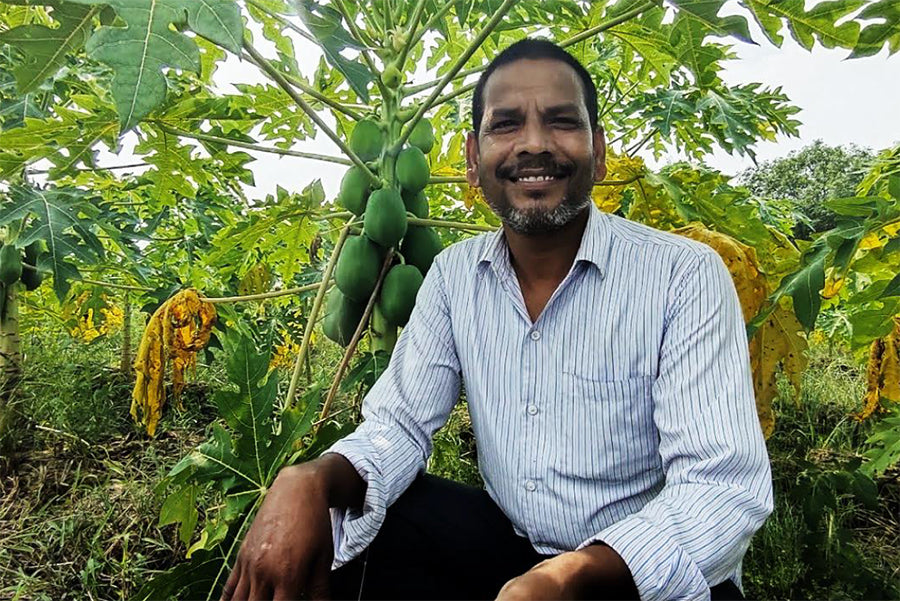
1. Uttar Pradesh
1,020,438 guava, lemon, pomegranate, custard apple, papaya, jackfruit, teak and other trees were planted in Sonebhadra (the second-largest district of Uttar Pradesh) and Bundelkhand, Uttar Pradesh.
Sonebhadra, also called the Energy Capital of India, has several power plants and mines, as well as agriculture specializing in rice, wheat and several varieties of lentils. Impacted by shallow, rocky soils, a lack of irrigation infrastructure, industrial pollution and food insecurity, it's one of the most challenged districts in India. Our partner, Sustainable Green Initiative, intends to transform this land into a sustainable food forest over time, which will benefit the local tribal population with reliable employment, reducing the need for them to migrate to urban areas for work. To support this vision, we're helping to develop a nursery with a 10 million fruit tree/year capacity.
Bundelkhand, home of several authors, poets, athletes, politicians and freedom fighters, also faces significant challenges. These include rocky and non-cultivable land, low industrialization, a 48% literacy rate, droughts, poverty and food insecurity. The trees planted here will improve the lives of local communities, providing them with nutritious food and reliable income.
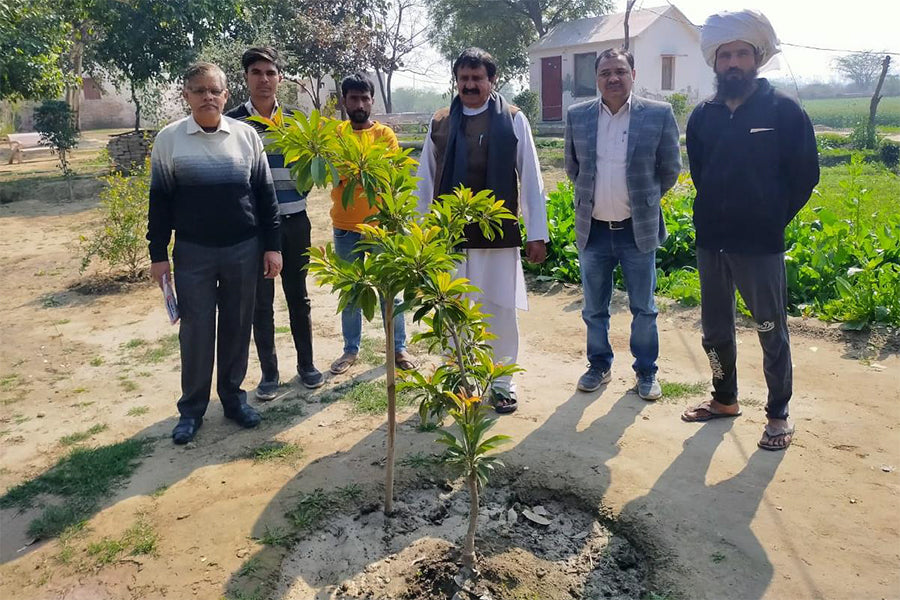
2. HARYANA
379,129 guava, lemon, jackfruit, mango, custard apple and other trees were planted in villages across Palwal and Mahendragarh, Haryana.We had originally planned to plant over 1 million fruit trees here, but due to COVID-related closures, we adjusted our plans and planted in 5 additional states.
Flanked by the Aravalli hills on one side and the Yamuna on the other, Palwal is impacted by forest cover loss, few employment opportunities, food insecurity and a low literacy rate. The majority of farmers here are considered marginal meaning that they have less than 1 hectare of land to support their families.
Mahendragarh, which is home to the Dhosi hill, a tourist site that is said to be the seat of Chyawan Rishi's ashram (where the Ayurvedic health supplement Chyawanprash was formulated). Facing food insecurity, marginal farmers here will benefit from nutritious food and more reliable income over time.
Due to Haryana's strategic location, we've established two nurseries here, which were designed and built to raise two million fruit tree saplings per year. This new nursery capacity will benefit planting projects in and around the Delhi NCR capital region of India, within Delhi, and throughout the adjoining states of Haryana, Rajasthan and Uttar Pradesh.

3. Madhya Pradesh
65,000 papaya, guava, lemon custard apple and other fruit trees were planted in Dewas and Bhopal, Madhya Pradesh.
Located on the Malwa plateau and spread over 7,020 square kilometers, this district is known as the soya capital of India. Dotted with windmills, this area was recognized in 2012 by the UN with 3rd place in the category of "Best water management practices" thanks to its motivated and innovative farmers. Despite its many achievements, the area faces challenges with tribal welfare and education. Planting early fruiting papaya trees here will create a source of much-needed nourishment for underprivileged and undernourished families.
In Bhopal, Guava, Lemon, Custard Apple, Pomegranate and other trees were planted at the request of the Indian Army. As these trees grow, they'll increase the green cover of this area, and provide nutritious food.

4. Maharashtra
40,000 guava, lemon, pomegranate, custard apple and other tree seedlings were planted in Roha and Mumbai, Maharashtra.
Home to many chemical and pharmaceutical industries, the town of Roha is located in a designated Chemical Industry Zone. Historically home to biodiversity hotspots and tribal societies, this area has lost a reported 40% of its green cover and biodiversity in the past 3 decades. The region urgently needs trees to help improve water quality and increase groundwater levels, as well as addressing significant pollution from the chemical industry.
The commercial and financial capital of India, Mumbai is home to 24.4 million people and has one of the highest population densities in the world. We planted a variety of fruit tree saplings on a campus near the Mumbai airport to help provide nutritious food and create an urban pocket of biodiversity habitat.

5. UTTARAKHAND
15,000 plum, pear and apricot saplings were planted in Ghansali, Uttarakhand.
Challenged by a low literacy rate, few employment opportunities, and receding green cover, the marginal farming community in this beautiful, hilly area welcomed the opportunity to diversify their crops with sustainable agroforestry. As the trees grow, they'll help alleviate hunger, poverty and rural migration while fighting climate change.

6. Rajasthan
14,363 lemon, guava, custard apple, pomegranate, and other trees were planted in Rajasthan villages near our Ateli nursery, with many more planned for future planting seasons.
As the trees grow, they'll benefit marginal farmers and their families with food and income, absorb pollution, fight climate change, slow and retain water flow, provide habitat for biodiversity, and more!

Ready to take action for Sustainable Agroforestry in India? here's how you can help
India suffered greatly from the pandemic during 2021. Local lockdowns and restrictions on movement changed the shape of this project throughout the year, but our amazing on-ground partners were able to adapt the fruit tree program to ensure the safety of their team and the local communities they operated in.
Providing access to healthy food and empowering farmers to develop sustainable livelihoods has never been more important. Sustainable agroforestry is a powerful tool for empowering communities and improving their lives. Want to join us? Plant a tree in India today!
